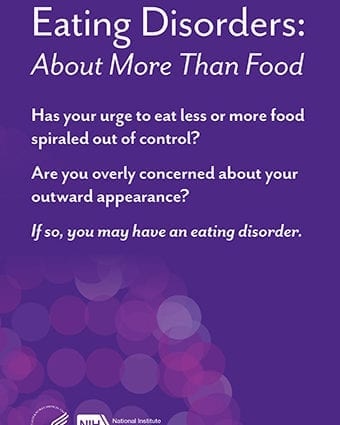Contents
- What is Orthorexia?
- 1. Do you feel particularly preoccupied with thoughts about food?
- 2. Do you have strict rules when it comes to eating?
- 3. Do your eating habits affect your mood?
- 4. Do your family members consider you a fanatic of a healthy lifestyle and a “food extreme”?
- 5. Do you classify foods as good and bad?
- 6. Does food tell you where to go and with whom to communicate?
Download Instagram, you will immediately see them: they are the ones who capture for the story every piece that they send into their mouths. They savor, enjoy, take pride in their plates, in which are lonely greens with nuts. It seems funny and harmless to you. But in any case – excessive. After all, the line between a sound idea of healthy eating and an obsessive eating disorder (or, scientifically, orthorexia) is very thin.
Already, psychologists are sounding the alarm: the demonstration of super-proper nutrition by fashion bloggers – the idols of today’s teenage girls – can lead to anorexia and bulimia in their readers and followers. An unhealthy passion for cleansing diets threatens to deprive not only nutritious, but also other substances useful for health and life – vitamins, minerals, etc.
What is Orthorexia?
What in today’s abundant and well-fed world makes people voluntarily – and corny – malnourished? Orthorexia nervosa is an eating disorder characterized by an obsessive desire for a healthy and healthy diet. As a term, orthorexia was first designated in the 70s of the last century, but the scale of the epidemic has reached only in recent years. Indeed, today the idea of a healthy lifestyle and proper nutrition is so popular that “excesses” happen more and more often. True, it should be noted right away: orthorexia is not an official diagnosis, since it is not included in the international classifiers of diseases.
Clinical psychologists are involved in correcting manic desire for proper nutrition. It was they who developed six questions, answering which honestly and directly, you can understand – has not healthy eating become your unhealthy hobby?
1. Do you feel particularly preoccupied with thoughts about food?
If planning meals, developing menus, scrupulously thinking about starting and stopping diets has become an obsession, if you are literally “fixated” on proper nutrition and calorie counting, this may be the first wake-up call.
2. Do you have strict rules when it comes to eating?
Of course, no one has canceled the basic rules of healthy eating. And sticking to them is helpful. But if they are too strict, if any deviation is harshly condemned by you (“step to the right, step to the left – shooting”), if you often use expressions like “I never eat …” in conversation, food turns into a problem.
3. Do your eating habits affect your mood?
It’s one thing to diet and be proud of yourself, to be happy, contented and optimistic. But if the same diet drives you into stress, makes you anxious, feel guilty, then it’s time to change something in your attitude to healthy habits.
4. Do your family members consider you a fanatic of a healthy lifestyle and a “food extreme”?
Sometimes from the inside it is difficult to notice something amiss in the general ideal picture of the world. But the immediate environment is more vigilant and looks at you from a different angle. This means that it can detect a problem in behavior earlier. So if you often hear comments and reproaches from your family and friends, do not get angry, but think – maybe they are right?
5. Do you classify foods as good and bad?
Thinking of some (if not many) products as “bad” can lead to stumping. After all, if, after much persuasion, you still decide to try a small piece of “bad”, “harmful”, but very tasty mom’s cake, it will drive you into depression for many days. You need it?
6. Does food tell you where to go and with whom to communicate?
Do you refuse an invitation to visit because a feast awaits you there? Or quarrel with friends who are trying to drag you into a cafe to sit and chat, but you don’t need these extra calories (and the extra discomfort of sitting and watching others eat)? As a result, different eating habits force you to give up friends, communication, any joys in life.
The first step to getting rid of orthorexia is realizing that the desire for proper nutrition is moving into the stage of obsession. After that, the process of “recovery” can begin. This can be done through self-control – pull yourself away from thinking about the benefits of food, do not refuse to meet with friends in public places (cafes, restaurants) or at their places, pay less attention to food labels, listen to the body, its taste desires, and not only to the dogmas of proper nutrition. And if you can’t cope on your own, contact a nutritionist and psychologist: the first will make a healthy restorative diet, and the second will help you treat food sensibly and find the meaning of life not only in what you eat.










